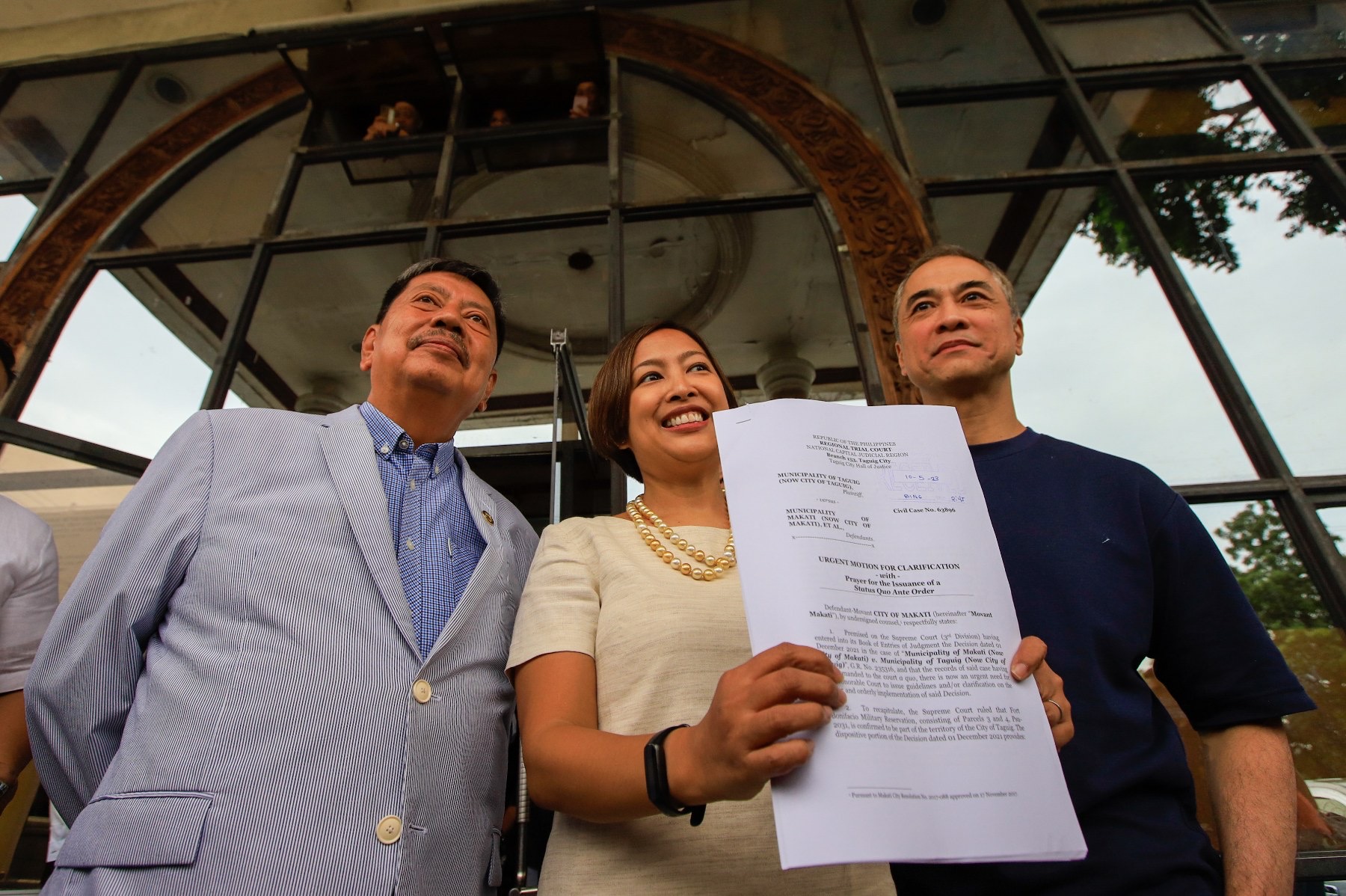Mayor Abby files petition for issuance of status quo order vs Taguig
Makati City Mayor Abby Binay on Thursday, Oct. 5, went to Taguig Regional Trial Court (RTC) and filed an “Urgent Motion for Clarification with Prayer for the Issuance of a Status Quo Ante Order” against Taguig City’s attempts to "unilaterally and arbitrarily implement the Supreme Court’s decision without any writ of execution from the trial court".

Mayor Abby Binay (Photo by Noel Pabalate)
Binay filed the petition, together with City Administrator Claro Certeza and City Legal Officer Michael Camiña.
"The status quo order, which is similar to a cease-and-desist order, is an order to maintain the last actual, peaceable, uncontested state of things which preceded the controversy. It was noted in the Urgent Motion that the Supreme Court (SC) has consistently ruled that a “status quo order is warranted in order to promote common good as well as protect the public interest," the city government said in the petition.
“Makati only wants an orderly administration of the Supreme Court decision with the least disruption to the residents and the uninterrupted delivery of basic services in the affected areas," Binay said.
She cited several "alarming and highly confusing incidents” caused by Taguig’s moves to forcibly execute the SC decision without a valid writ of execution which include attempts to enter the premises of a housing project owned by Makati, and forcibly take possession of several school buildings and health centers in the affected barangays.
These incidents, particularly the supposed takeover of school buildings, caused concern among the residents of the city, especially its learners, parents, and teaching staff.
This prompted the Department of Education (DepEd) to take over the management and supervision of its 14 schools affected by the territorial dispute with Taguig.
On Aug. 16, DepEd issued Order No. 23, Series of 2023, or the "Assumption of Authority of the Department of Education over the 14 public schools affected by Supreme Court decision in G.R. No. 235316".
The agency said the order was issued following the increased tension between the two local government units (LGUs) regarding the management and supervision of the affected schools which poses uncertainty to the peaceful and orderly reopening of classes on Aug. 29.
"The subject schools are DepEd schools. Hence, in the pursuit of protecting the best interest and welfare of our learners, teachers, and non-teaching personnel, the Office of the Secretary shall directly supervise the management and administration of all 14 schools, pending a transition plan, effective immediately," the order stated.
"During the transition period, all activities to be conducted within the premises of and/or in relation to the subject public schools, including those from the Local Government Units of Makati and Taguig, shall require prior approval from the Office of the Secretary (OSec)," it added.
“Taguig cannot simply take the law into its own hands and act as it pleases without any writ of execution issued by the court. Because of Taguig’s arbitrary, whimsical, and capricious attempts to unilaterally implement the SC Decision in a piece-meal manner, the people’s welfare has been unduly prejudiced by Taguig City and has created unwarranted tension and confusion among the residents and various government agencies”, Binay stressed.
The city government noted that the SC did not expressly order any part of the SC decision to be immediately executory, nor did it expressly mention in the dispositive part the exact metes and bounds of Parcels 3 and 4 of PSU-2031.
Makati City, therefore, asked the trial court to clarify and confirm the necessity of Taguig City to first obtain a writ of execution, and determine the exact metes and bounds of Parcels 3 and 4 of PSU-2031 before the SC decision can be implemented.
The motion will also allow Makati to assert its rights as owner of properties located in the disputed areas.
As stated by Mayor Binay, “[t]he present case involves a territorial dispute. It does not involve ownership of properties located within the disputed territory”.